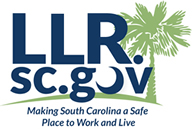Hello REALTORS®,
The federal government shut down at 12:01 a.m. Wednesday, October 1. Shutdowns have happened 14 times since 1980, but most of the shutdowns were in the 1980s, and most of them only lasted a few days. However, the last shutdown, in 2018, lasted 34 days.
When the Federal government shuts down, Realtors and their clients are affected because several program important to your business are considered “non-essential.” The highest profile program is the National Flood Insurance Program, but there are several other programs important to real estate that are affected too.
National Federal Flood Insurance Program
The National Federal Flood Insurance Program authorization technically ended in 2017. But its authorization has been extended each time federal funding authorization has been extended.
Because federal funding authorization expired, no new flood insurance policies will be written, nor will policies be renewed. However, existing policies will remain in effect until their expiration. And if a policy expires during the federal government shutdown, a 30-day grace period allows the policy to be renewed within 30 days of expiration, and coverage will not lapse.
During a shutdown, Federal regulators will not require flood insurance. Some banks may require it, but not because of a government mandate. NAR also says that most existing policies can be transferred from the seller to the buyer.
EPA
According to NAR, most EPA employees will be furloughed during a government shutdown. That means that activities like wetland delineations and other permits under the Clean Water Act will be suspended, affecting real estate development. And agency regulatory activity will pause as well. The EPA has several pending changes to rules that NAR has supported.
HUD and Housing Programs
According to HUD, FHA will continue to endorse new loans for single-family homes, but not multi-family homes. However, as with all government agencies operating during a shutdown, approvals may be delayed because of staff furloughs.
Fannie Mae and Freddie Mac have continued to operate during past government shutdowns. Rural Housing Direct Loans will not close, but Guaranteed Loans have closed in the past at the lender’s discretion. And VA loans have closed in the past but were often delayed by limited staffing.
IRS
During past shutdowns, most IRS employees were deemed non-essential, and furloughed. Only IRS employees who are needed to protect the government will continue to work. Fannie Mae, Freddie Mac, and FHA may take interim measures for documentation needed from the IRS that may not be available, like tax and social security verifications.
Small Business Administration
During past shutdowns, SBA loan applications were not processed. However, SBA will continue to process previously approved loans. They also will issue disaster loans, if necessary.
Work Visas
EB-5 immigration visas are funded through a different revenue source and will continue to be processed. However, they are expected to be delayed because most State Department staff will be furloughed. That means other visa applications, like H-2B, will not be processed. And if you need a passport, that will be delayed too.
Will a government shut down affect Realtors?
According to a survey by NAR, 75 percent of Realtors report no impact on their business during a government shutdown. However, 11 percent report that past shutdowns have impacted them and their clients. The most common impact was that their client decided not to buy because of economic uncertainty.
RPAC is Important
If real estate is your profession, advocacy is your business. And these advocacy results highlight the importance of supporting your association’s advocacy program. RPAC is an important element of that advocacy program.
I encourage all Realtors to support RPAC, and we make it easy to do so. We include a voluntary $25 RPAC contribution ($100 for brokers) on your annual dues renewal. Simply pay it and you have supported RPAC. If you want to do more, that’s easy too.
Michael Dey, Director of Government Affairs
Did you know? Nationally, 13,000 home sales per day require flood insurance.



